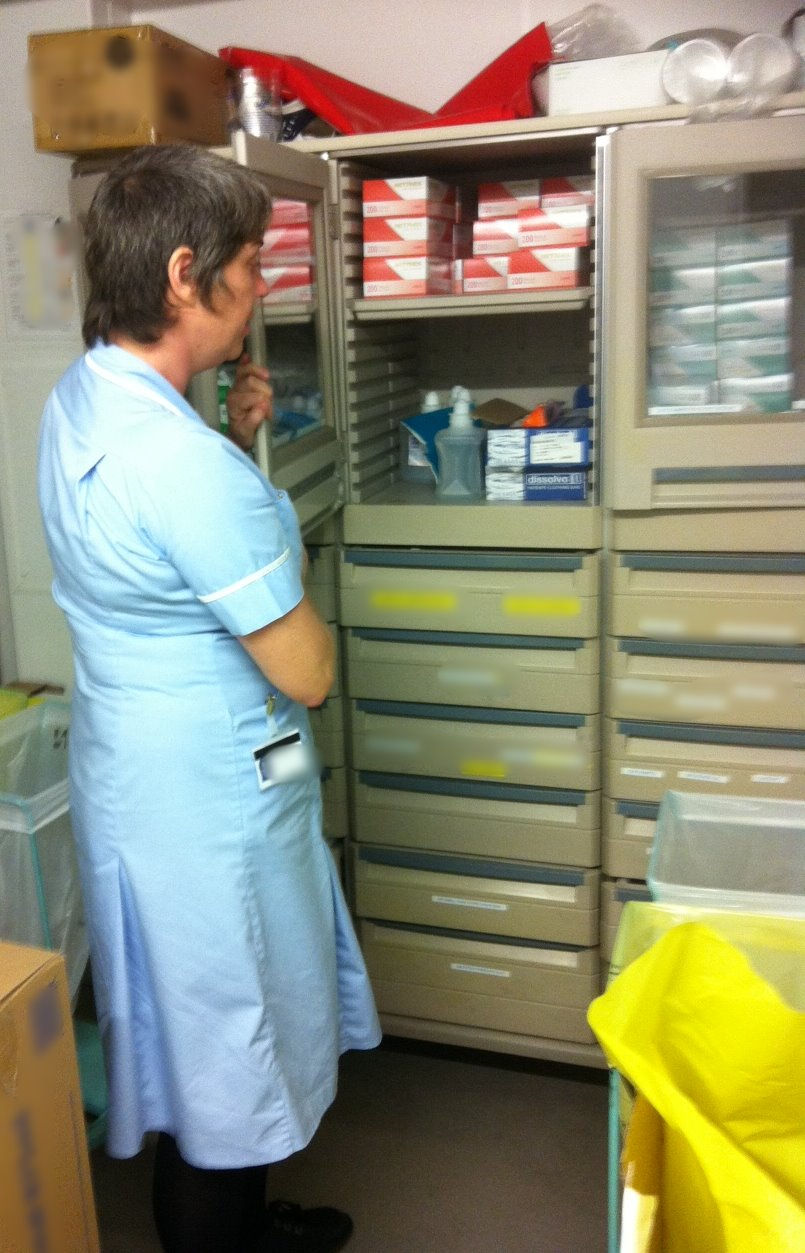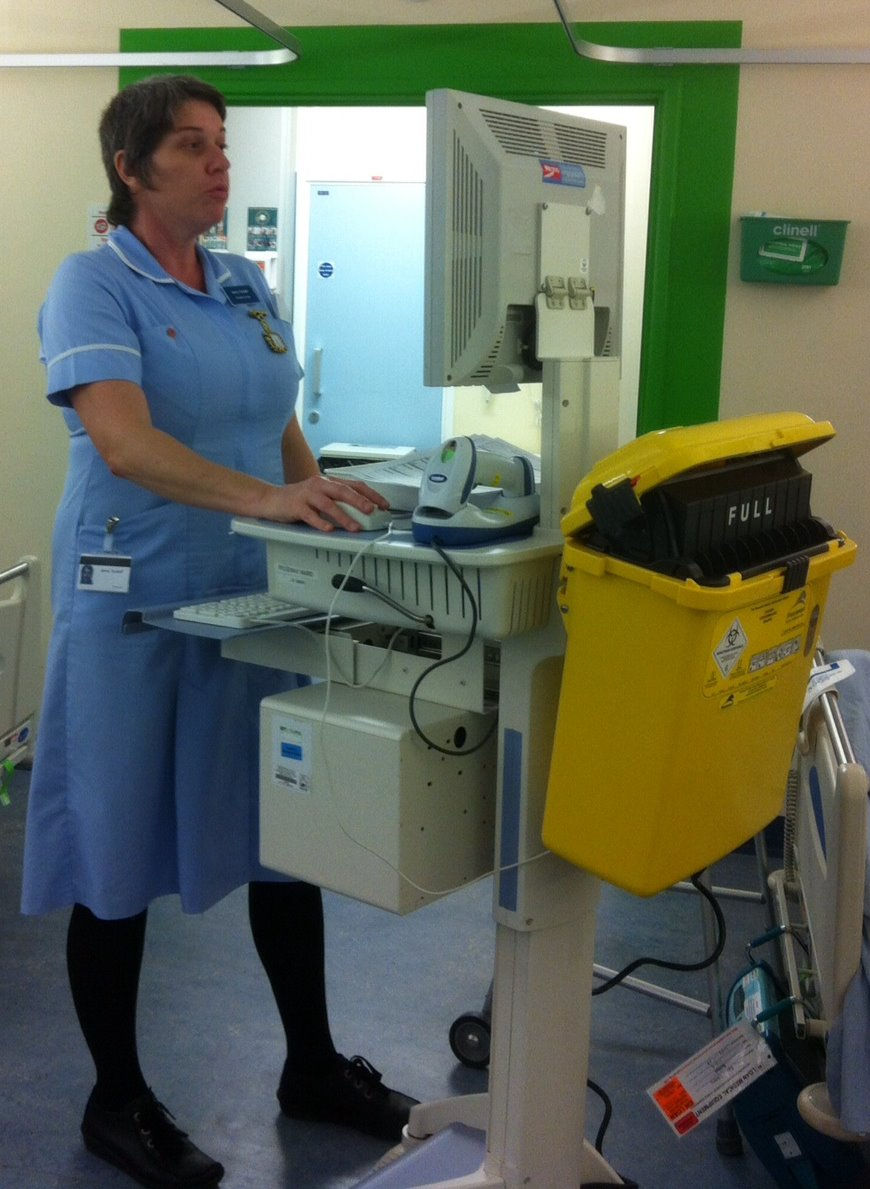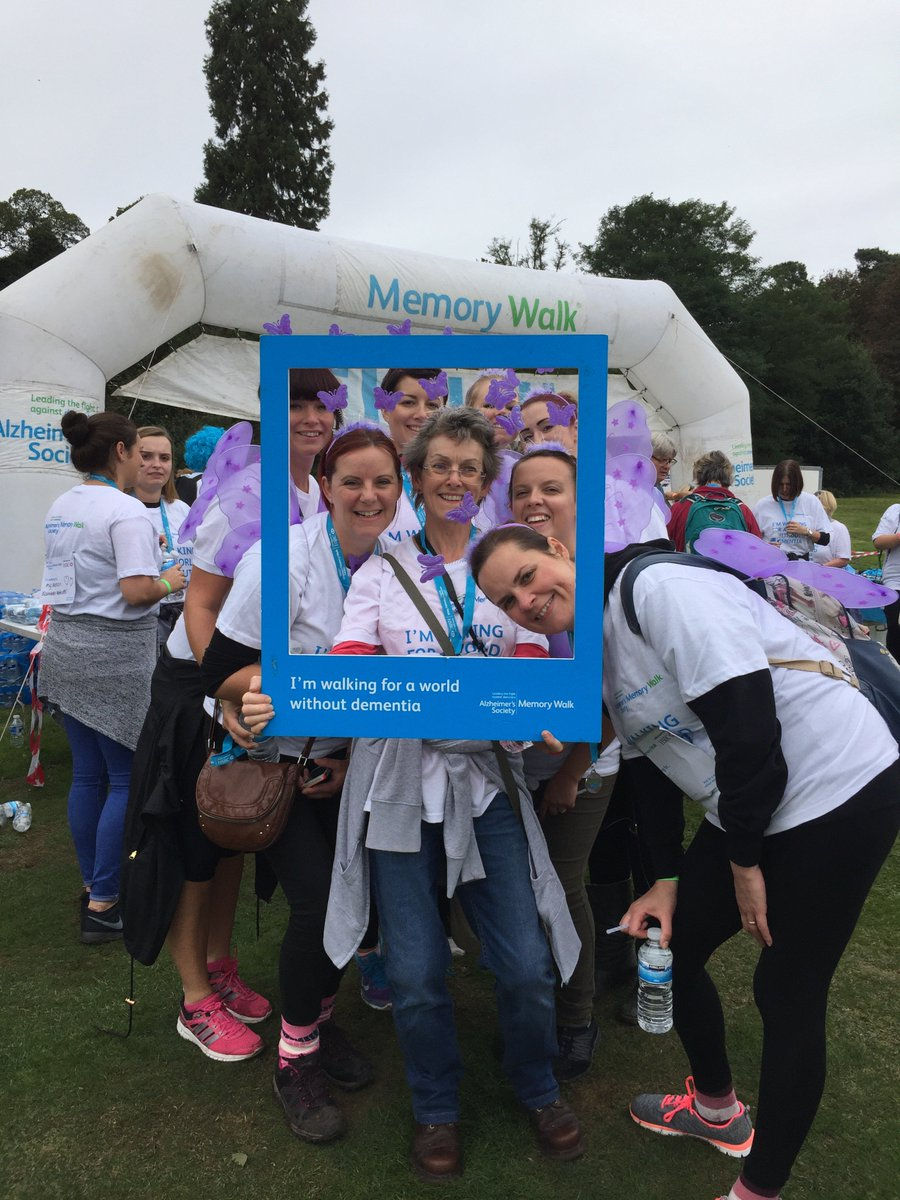
Ashover Ward
Phone: 01246 512410 / 01246 512411 LEM: Jamie Everest













Dementia & Parkinson's disease
Ashover ward specialises in elderly medicine, focusing on dementia, and Parkinson’s disease. It is an adult ward that deals with dementia, and students are bound to observe many comorbidities. This will make every nursing intervention more challenging. As a nursing student, you will have the opportunity to learn more about these two neurological diseases, and the various ways to manage them. Here are two videos introducing students to dementia and Parkinson’s disease. These videos will present a general overview of how these diseases affect the anatomy and physiology of patients. Specifically, these videos focus on the brain, and neurological systems of the affected patients.
Medical Team – There are two consultants on the ward: Dr Genever (abbreviated to RWG), and Dr Ullegaddi (abbreviated to RU). Each consultant has his own teams of doctors who are on the ward daily Monday to Friday. For medical reviews required overnight or at weekends, an on call doctor can be requested via the bleep system. As a student, you will find it useful to familiarise yourself with the bleep system used within the hospital.
LEM: Jamie Everest
Pharmacy – Pharmacists, and pharmacy assistants, visit the ward daily to liaise with the MDT, and provide pharmaceutical services to the patients. Prescriptions, and medicine administrations, are logged on the JACS software system. As a student, you can liaise with Education Services to gain temporary log in access to this system.
Discharge – There is a dedicated discharge co-ordinator on the ward, who works alongside all the MDT staff on Ashover, to promote timely and safe patient discharge.
Physiotherapy - The Physiotherapy Team aim to promote patients' rehabilitation to, if possible, pre-admission levels of mobility. The physiotherapists can also advise on to the most appropriate method, and equipment if needed, to help patients mobilise around their bed space. Physiotherapists wear white uniforms with a green trim.
Occupational Therapy - The Occupational Therapy team assist patients return to their normal level, or 'baseline', for everyday activities such as toileting, personal care, and dining. The team can provide adapted equipment for patients on discharge that promote independance. Occupational therapists wear white uniforms with a green trim.
SALT - Speech and Language Therapists predominately visit Ashover patients to assess an individual’s 'swallow’. If a patient is experiencing difficulty with swallowing (dysphagia), there is a risk that they may ‘aspirate’, or inhale, food and/or fluids; aspiration can be catastrophic for a patient. The Speech and Language Therapist can assess a patient’s swallow and advise on the most appropriate modified food and fluids diet.
Dietician – Where a patient has poor oral intake, or is at risk of malnutrition, the Dietician can advise on fortified diets and supplements that are suitable for the patient. Dieticians will also advise, and prescribe, enteral feeding regimes.
The Multi-Disciplinary Team (MDT) on Ashover Ward
Ashover 'protects' lunch and dinner times. This means that all non essential ward activity stops to promote a relaxed environment in which patients can enjoy their meal.
Modified diets and thickened fluids are available for patients who have dysphagia. Food consistencies can be soft, mashable or pureed. Drinks are ranked on consistency from normal to stage 3.
Weight and height are recorded on admission to the ward, and a BMI and MUST score calculated. MUST scores are calculated on a weekly basis. A patient can be referred to a Dietician for additional nutritional support if they are at risk of malnutrition through poor oral intake.


It is hospital policy that all patients’ individual needs with regards to diet and assistance are displayed above the patients’ bed space. There are three levels of assistance:
1. Minimal assistance, such as opening packaging
2. Moderate assistance, such as positioning of crockery and cutlery, or cutting up food
3. Full assistance, including helping a patient get food and drink to their mouth.
Nutrition & Meal Times
Many patients on Ashover Ward have restricted mobility, or are nursed in bed. A robust repositioning and comfort care regime helps maintain skin integrity. You will need to record any repositioning of patients, and assess their skin integrity. Each week, a patient’s Waterlow score is calculated and recorded. Refresh your knowledge of pressure areas and pressure ulcers here.
Pressure Area Care
As a student on Ashover Ward, you will be involved in supporting, and providing care to, vulnerable adults. Galpin and Morrison (2010) stated that “Government clearly identifies the expectation that Safeguarding Adults is everyone’s business. Therefore, professional groups, employers, and educators all have a responsibility in developing and demonstrating high levels of skill, knowledge and practice, especially within the realm of Safeguarding Adults”.
No doubt prior to your placement you will have completed Safeguarding Adults and Children training at your academic institution, and be aware that there are specific NMC competencies aimed at consolidating your practice and learning. Adult Safeguarding policy specific to Chesterfield Royal Hospital is available on the trust intranet, and on the ward in printed format.
Safeguarding Vulnerable Adults
As Ashover ward works specifically with patients suffering from Dementia, the concepts of Mental Capacity and Best Interest will be applicable to your placement. You may also come across patients who have a Deprivation of Liberty (DOL) in place. Understanding relevant legislation and guidance, and applying it to your practice, will help you met a variety of NMC pre-registration competencies. The information below is designed as a basic overview, with links to documentation produced by Government organisations. Not only will these links provide a deeper understanding of the subject, but they are also an excellent source for referencing your evidence and portfolio work.
Mental Capacity, Best Interest & DoLs
The Mental Capacity Act 2005 (which came into force 2007, and covers England and Wales) provides a statutory framework for people who lack capacity to make decisions for themselves, or who have capacity and want to prepare for a time when they may lack capacity in the future. The legal framework provided by the Mental Capacity Act 2005 is supported by the Code of Practice which provides guidance and information about how the Act works in practice. Healthcare staff, including nurses, are legally required to ‘have regard to’ relevant guidance in the Code of Practice (Department for Constitutional Affairs 2007). The Office of the Public Guardian produced a Mental Capacity Act guide specifically for healthcare workers.
The concept of ‘best interest’ is fundamental to the Mental Capacity Act. The concept has been developed for individuals who lack capacity to make specific decisions for themselves, especially decisions relating to the provision of medical treatment, social care, and financial and personal welfare. It applies to anyone making decisions or acting under the provisions of the Act, including healthcare staff, and families or carers. However, where someone has previously made an advance decision to refuse medical treatment while they had the capacity to do so, the principle of best interests will not apply, even if others think that the decision to refuse treatment is not in their best interests (Department for Constitutional Affairs 2007).
Depriving an individual of their liberty can be a necessary requirement to provide effective care or treatment. By following the criteria set out in the Code of Practice, the decision to deprive someone of their liberty can be made lawfully and properly. The Code of Practice sets out how to identify when a person is, or is at risk of, being deprived of their liberty and how deprivation of liberty may be avoided. It explains the safeguards that have been put in place to ensure that deprivation of liberty, where it does need to occur, has a lawful basis. In addition, it provides guidance on what someone should do if they suspect that a person who lacks capacity is being deprived of their liberty unlawfully (Ministry of Justice 2008).
A Deprivation of Liberty can only be made through an application to Derbyshire County Council, and then requires consideration by a supervisory panel and assessment by an appropriately trained professional. In most cases, a deprivation of liberty can be identified and applied for ahead of the actual restriction, however there are systems available to make emergency or urgent applications. Examples of deprivation of liberties could be a patient wearing mittens to prevent them pulling out their NG feed, or preventing a patient deemed medically unsafe from leaving the ward.
The Mental Capacity Act 2005
End of Life Care
Ashover Ward, and Chesterfield Royal Hospital, provide End of Life care to patients under the Leadership Alliance for the Care of Dying People Once Chance to Get in Right Strategy. Where a patient is in the last few weeks of life, the MDT can liaise with community services to meet the patient's expressed wants and needs. In the last days of life, patients have a personalised care plan, and PRN medications available, to provide comfort and pain relief.
Pain Management
The majority of patients on Ashover ward have difficulties communicating their needs. Patients experience these difficulties because these diseases affect a patient’s comprehension, and inhibit their verbal skills. There is a myriad of ways in which dementia can affect a patient’s response to pain. These could manifest themselves in the forms of: aggressive behavior; apathy; and a lack of appetite. As a student nurse on Ashover ward, you will learn how to identify pain in your patients. Each patient you encounter will require a different method of pain management. It is important for students to explore these different pain management methodologies by learning from experienced nurses, as well as the multi-disciplinary team overseeing the ward. Students can always contact the Pain Management Team in order to broaden their knowledge about dealing with pain in patients, or to book an insight visit, to learn what it means to be a pain management nurse.